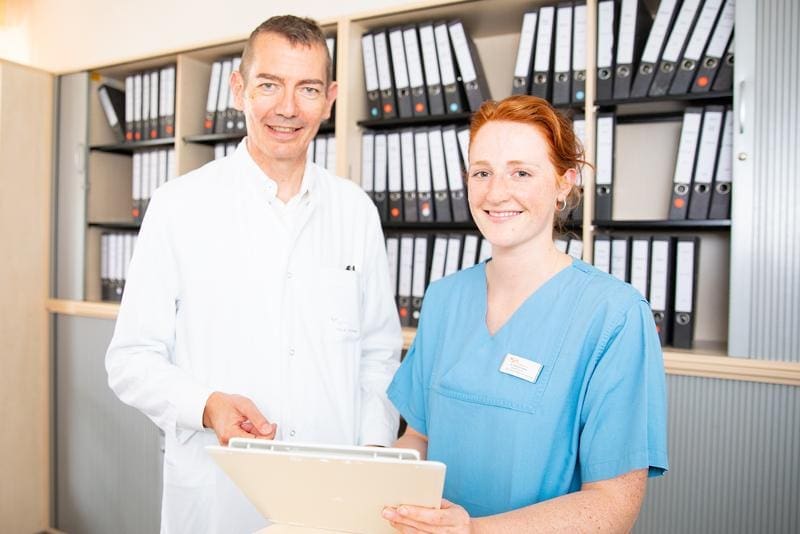MHH Children’s Hospital improves care for rare cancer risks
The Cancer Predisposition Outpatient Clinic (KPS) at Hannover Medical School (MHH) offers pioneering care for people with rare genetic diseases that increase the risk of cancer. Genetic predispositions are considered the most important known risk factor for cancer in children, adolescents and adults. It is estimated that around ten percent of cancer patients have such a syndrome, which affects around 500,000 people in Germany. The outpatient clinic aims to optimize clinical care pathways for patients with rare syndromes.
A cancer predisposition syndrome is a genetic disorder that increases the risk of certain cancers. Those affected require individual counseling, targeted early detection measures and therapies based on the latest findings. Several hundred children, adolescents and adults from all over Germany are treated in the outpatient clinic. Systematically collected data is used to continuously improve recommendations, while research findings are incorporated directly into clinical practice. Those affected are given access to special examinations and can take part in scientific studies.

While care structures exist for hereditary forms of breast, ovarian and bowel cancer, there is a lack of interdisciplinary facilities for rare syndromes. The outpatient clinic cooperates closely with the Institute of Human Genetics and the Institute of Diagnostic and Interventional Radiology in order to close this gap. The focus is not only on patient care, but also on involvement in research projects to expand knowledge about syndromes and their treatment. Comprehensive care requires the establishment of a nationwide network of comparable outpatient clinics.
Diagnoses are often made after the onset of cancer, but increasing genetic testing is leading to more frequent detections. Such diagnoses only make sense if counseling and the implementation of prevention, monitoring and therapy are guaranteed. There is currently little infrastructure in Germany for appropriate care. The reasons for this are the rarity and low awareness of the diseases, unclear care pathways for people at risk, the need for multidisciplinary expertise, insufficient remuneration for examinations and the lack of family-centered care, as several generations can be affected.
“Patients are sometimes only diagnosed with KPS after the onset of one or more cancers. The increasing use of genetic testing in cancer patients means that CPS is being diagnosed more frequently. However, such a diagnosis only makes sense if those affected are given appropriate advice and if the recommended clinical consequences in the areas of cancer prevention, monitoring and therapy can also be implemented,” explains Dr. Valentina H├żrter, a doctor in advanced training in the KPS outpatient clinic and in the MHH Children’s Hospital.
The team recently published their experiences with the first 399 patients treated in the journal The Lancet Regional Health – Europe. The work is supported by German Cancer Aid, the German Childhood Cancer Foundation, the Federal Ministry of Education and Research, the Association for Children with Cancer Hanover and the Gerdes Foundation.
Further information:
Hannover Medical School : Cancer Predisposition Outpatient Clinic
Read also:
UKL performs thrombectomies in children and develops guidelines – MedLabPortal
Editorial office: X-Press Journalistenb├╝ro GbR
Gender note. The personal designations used in this text always refer equally to female, male and diverse persons. Double/triple references and gendered designations are avoided in favor of better readability.




